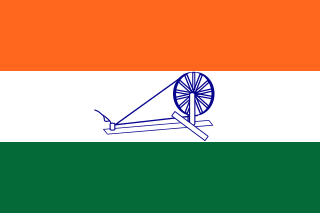
The Indian National Army was a collaborationist armed unit of Indian collaborators that fought under the command of the Japanese Empire. It was founded by Mohan Singh in September 1942 in Southeast Asia during World War II.

During the Second World War (1939–1945), India was a part of the British Empire. British India officially declared war on Nazi Germany in September 1939. India, as a part of the Allied Nations, sent over two and a half million soldiers to fight under British command against the Axis powers. India was also used as the base for American operations in support of China in the China Burma India Theater.

Rajyavardhan Singh Rathore is an Indian politician, Olympic medallist in shooting and retired colonel in the Indian Army. He is serving as a cabinet minister at the Industry & Commerce, Youth Affairs & Sports Department in the Government of Rajasthan since December 2023. Rathore was a Member of Parliament in the Lok Sabha from Jaipur Rural seat since 2014 till 2023.

The Provisional Government of Free India or, more simply, Azad Hind, was a short-lived Japanese-controlled provisional government in India. It was established in Japanese occupied Singapore during World War II in October 1943 and has been considered a puppet state of the Empire of Japan.
Jai Hind is a salutation and slogan that originally meant "Victory to Hindustan", and in contemporary colloquial usage often means "Long live India" or "Salute to India". Coined by Champakaraman Pillai and used during India's independence movement from British rule, it emerged as a battle cry and in political speeches.
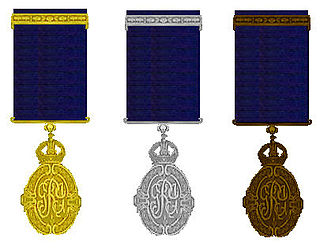
The Kaisar-i-Hind Medal for Public Service in India was a medal awarded by the Emperor/Empress of India between 1900 and 1947, to "any person without distinction of race, occupation, position, or sex ... who shall have distinguished himself by important and useful service in the advancement of the public interest in India."
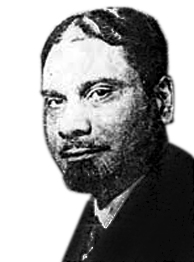
Chempakaraman Pillai was an Indian-born political activist and revolutionary. Born in Thiruvananthapuram, to Tamil parents, he left for Europe as a youth, where he spent the rest of his active life as an Indian nationalist and revolutionary.

General Kodendera Subayya Thimayya, DSO was the 3rd Chief of Army Staff from 1957 to 1961 during the crucial years leading up to the conflict with China in 1962. Thimayya was the only Indian to command an Infantry brigade in battle during the Second World War and is regarded as the most distinguished combat officer the Indian Army has produced. After the Korean War, Thimayya headed a United Nations unit dealing with the repatriation of prisoners of war. After his retirement from the Army, he was appointed Commander of the United Nations Peace Keeping Force in Cyprus from July 1964 to December 1965 and died in Cyprus while on active duty on 18 December 1965.
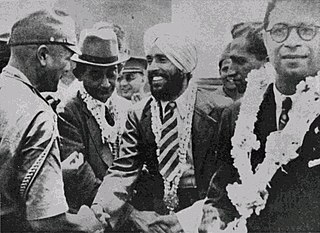
Mohan Singh was a British Indian Army officer, and later member of the Indian Independence Movement, best known for founding and leading the Indian National Army in South East Asia during World War II. Following Indian independence, Mohan Singh later served in public life as a Member of Parliament in the Rajya Sabha of the Indian Parliament.
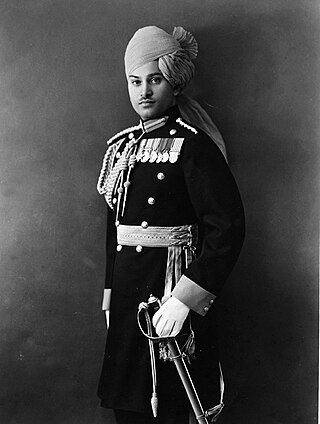
Rao Raja Hanut Singh was a British Indian Army soldier and polo player.

The Indian National Army trials was the British Indian trial by court-martial of a number of officers of the Indian National Army (INA) between November 1945 and May 1946, on various charges of treason, torture, murder and abetment to murder, during the Second World War.
The Sardar-e-Jung was the second highest military decoration by the awarded by the Azad Hind Government. First instituted by Subhas Chandra Bose in Germany, it was later also awarded to troops of the Indian National Army in South East Asia. The award could be conferred with swords for valour in combat, and without swords for non-combat awards. At least three awards were made, one to Colonel Shaukat Ali Malik for the capture of Moirang, to Capt Shangara Singh Mann and to Lt Kunwar Balwant singh for capturing British Army Post at Modak. Capt. Mann was also awarded the Vir-e-Hind medal. Colonel Pritam Singh was awarded Sardar-e-jung, he captured a hill named Pritam Hill in Myanmar, Burma & Palel Airport.
The Vir-e-Hind was a military decoration awarded by the Azad Hind Government. The award was a second class star below the award of Sardar-e-Jung. First instituted by Subhas Chandra Bose in Germany, it was later also awarded to troops of the Indian National Army in South East Asia. The award could be conferred with swords for valour in combat, and without swords for non-combat awards. At least one award was made, to Capt Shangara Singh Mann. Capt. Mann was also awarded the Sardar-e-Jung medal.
Ram Singh Thakuri was an Indian freedom fighter, musician and composer. He composed a number of patriotic songs including Qadam Qadam Badhaye Ja and Shubh Sukh Chain whilst serving in the Indian National Army.

Major General Arcot Doraiswamy Loganadan was an officer of the Indian National Army, and was also a minister in the Azad Hind Government as a representative of the Indian National Army there. Loganadan also served briefly as the Governor of the Andaman Islands while these islands were occupied by the Japanese during the war, and afterwards moved to Burma for the duration of the war.

Mohammed Zaman Kiani was an officer of the British Indian Army who later joined the Indian National Army (INA), led by Subhas Chandra Bose, and commanded its 1st Division.
The decorations of Azad Hind were instituted by Subhas Chandra Bose while in Nazi Germany, initially for the Indian Legion, to be awarded for gallantry in the field of battle. Both Indians and Germans were eligible for the decorations. Later, the same awards were instituted by the Azad Hind provisional government for the Indian National Army during its campaign in South-East Asia.
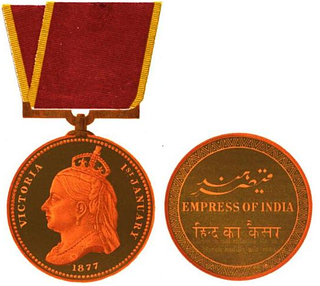
The Empress of India Medal, also referred to as KIH Medal, was a commemorative medal awarded to mark the occasion of the proclamation of Queen Victoria as Empress of India in 1877. It was the first wearable medal issued to mark a commemorative occasion within the British Empire. The medal was awarded in gold to Indian princes and senior officials and in silver to selected British and Indian military officers and civilians, as well as one soldier from each British and Indian regiment serving in India at the time of the proclamation celebrations of the 1877 Delhi Durbar.
Lieutenant General Inderjit Singh Gill, PVSM, MC was a general officer in the Indian Army. He was the officiating Director of Military Operations (DMO) of the Indian Army during the Bangladesh Liberation War. He retired in 1979 after serving as the Western Army Commander.

Captain Mukhtiar Singh, popularly known as Mukhiya, was an Indian wrestler. He was the first one to grab two gold medals for India in Commonwealth Games and also he won a bronze medal in the 1970 Asian Games. He served Indian Army for 26 years and retired as Hon. Captain in 1988. Indian Army honored him with Vishisht Seva Medal (VSM) for his outstanding services. He was awarded Arjun Award, the second-highest sporting honour of India, in 1967.












